Everything you need to know about professional accounting credentials
Everything you need to know about professional accounting credentials
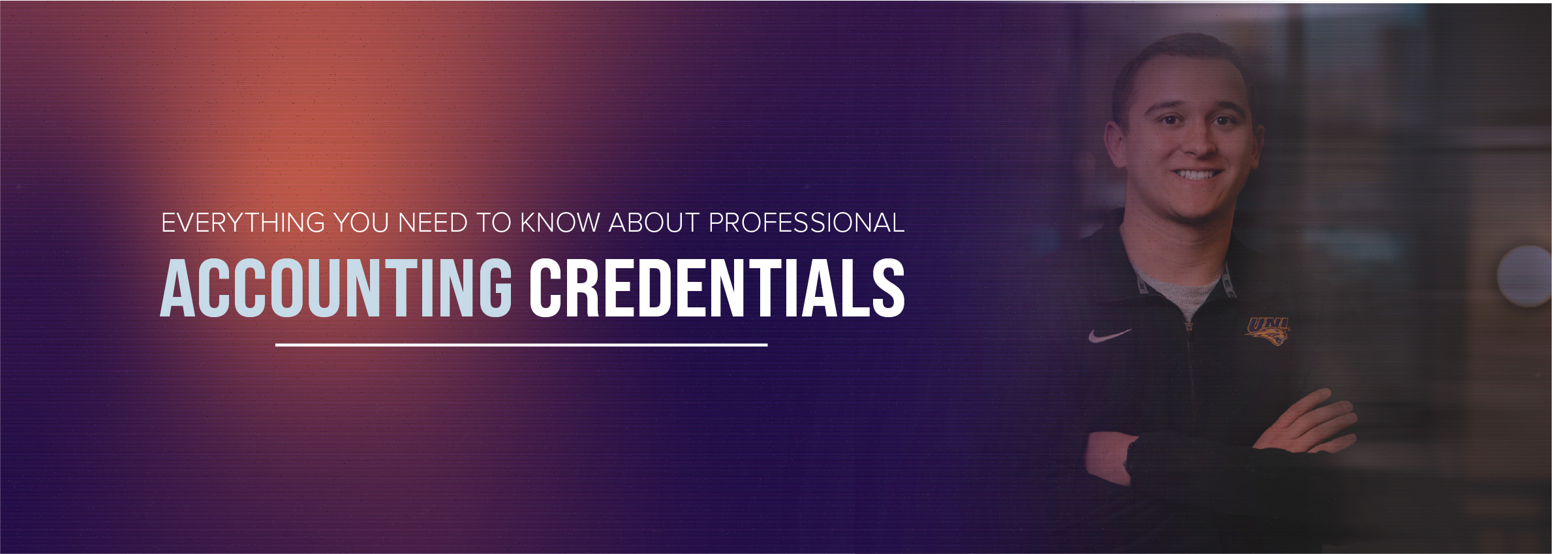
Accounting credentials help develop essential knowledge, shape career paths, and lead to advancements in the accounting industry. Often, they are required to enter certain fields.
There are several credential options out there for students interested in pursuing accounting careers. If you’re wondering how to navigate all these choices, here’s what you need to know.
What are the most common accounting credentials?
Certified Public Accountant (CPA)
CPA is the most recognized accounting credential. Unlike the others, the CPA is a professional license, much like a law or medical license. It comes with exclusive rights, such as signing off on audits of publicly traded companies, performing attest functions on reporting systems and more. The CPA also affords license holders other benefits because of its high esteem in the workplace. For example, the minimum qualifications to be an FBI special agent require candidates to be a CPA, or, have a bachelor's degree and at least three years of experience.
Requirements:
Pass a rigorous four-part licensing exam covering financial accounting, auditing, taxation, business and personal finance, and business law.
Pass an ethics exam.
150 college-level credits.
Bachelor’s degree.
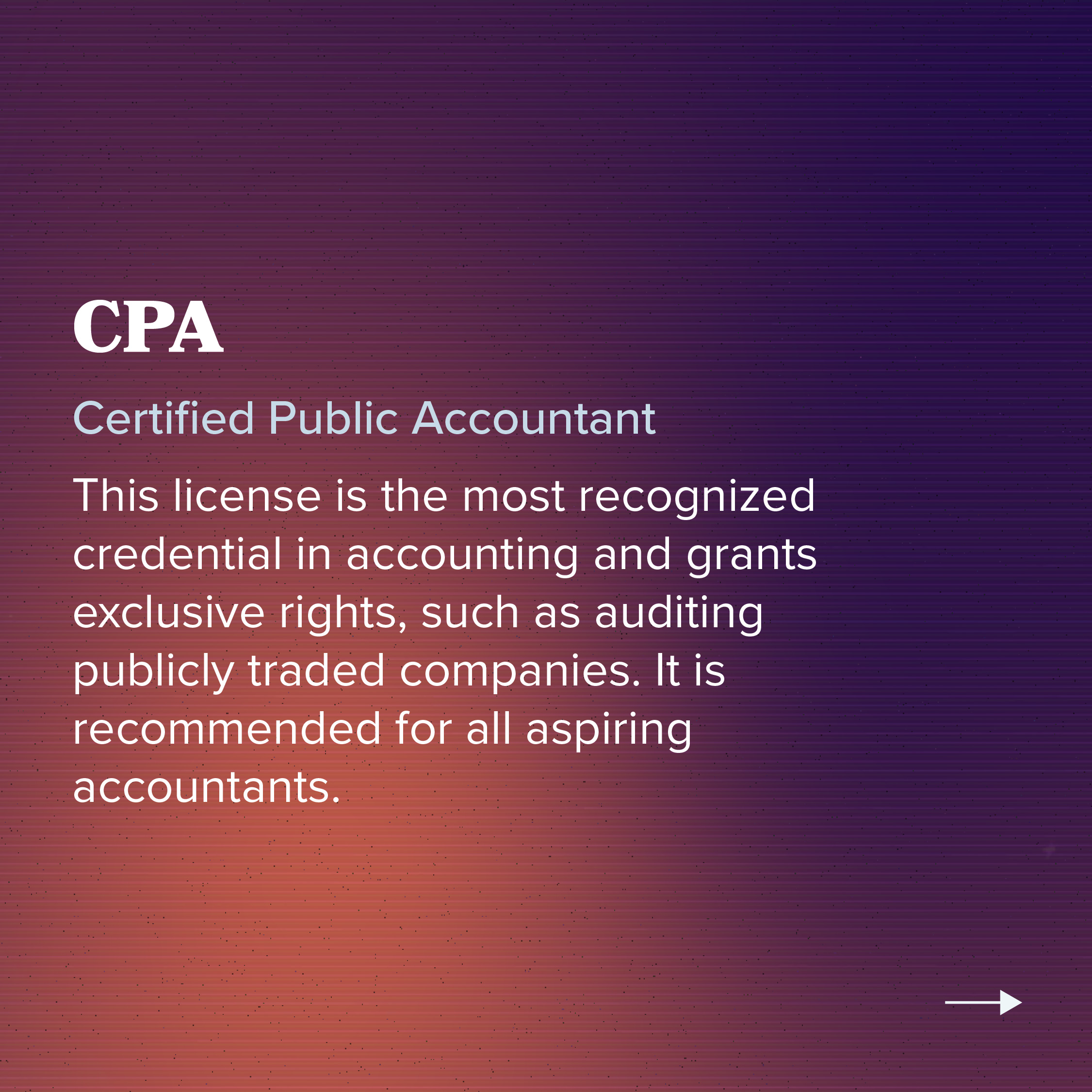
Certified Management Accountant (CMA)
The CMA certification – the second most sought-after credential after the CPA – focuses on management accounting, financial analysis, budgeting and cost management. This is a great credential for individuals planning to work in corporate accounting or corporate finance.
Requirements:
Bachelor’s degree.
Two years of employment in financial management or management accounting.
Pass a two-part exam covering corporate accounting and finance.
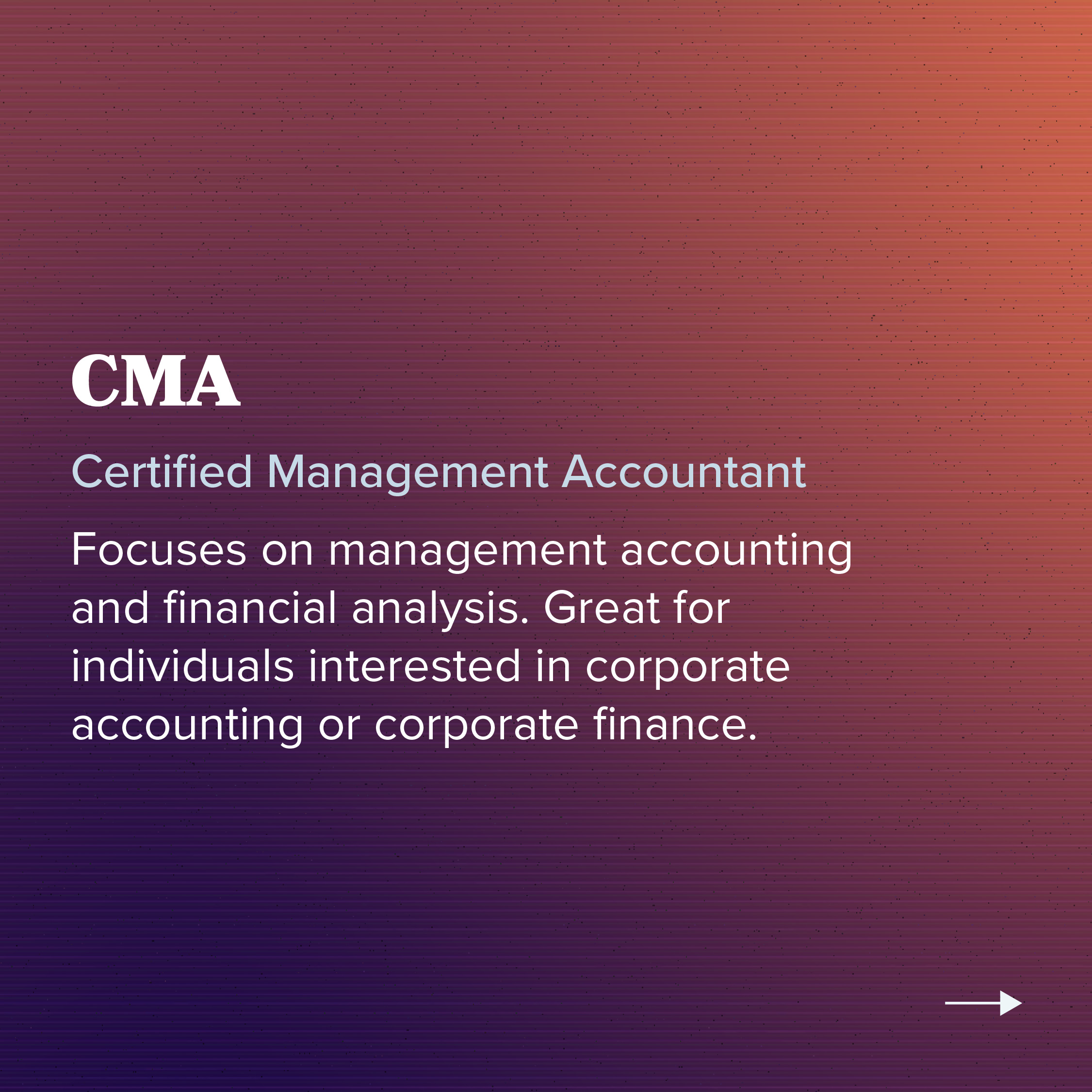
Enrolled Agent (EA):
EA is a tax specialization credential certified by the IRS, focused on tax preparation, representation and compliance. EAs can represent clients in front of the IRS on tax matters. The EA is ideal for graduates going into tax preparation who don’t want to pursue a CPA.
Requirements:
Obtain a preparer tax identification number.
Pass the three-part Special Enrollment Examination.
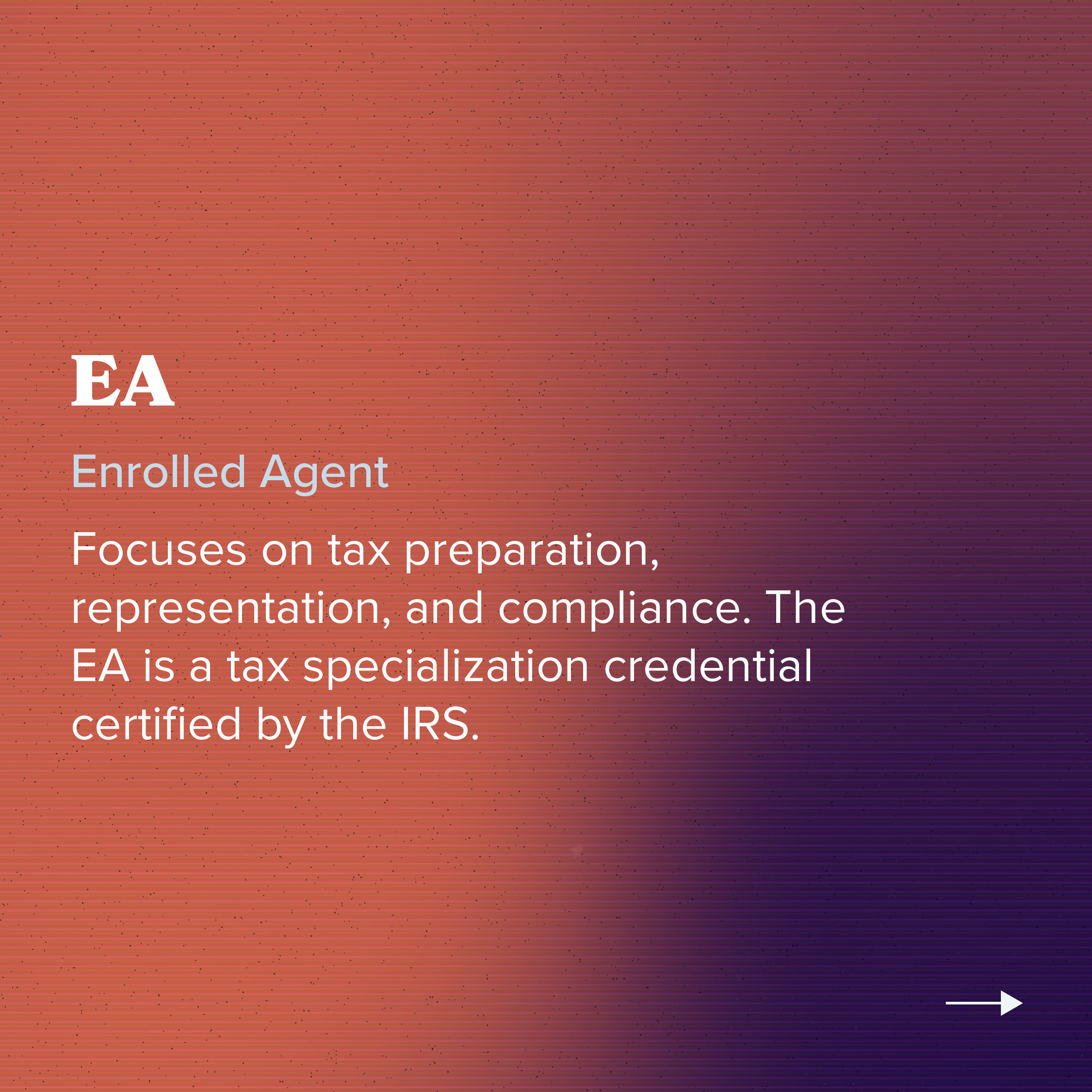
Certified Internal Auditor (CIA)
The CIA specializes in internal auditing, risk management and internal controls. It’s a great credential for graduates entering corporate accounting roles or government positions.
Requirements:
At least one of the following: A bachelor’s degree, an active Internal Audit Practitioner designation, five years of internal audit experience, a student in their final year of college or an active student with an approved Internal Audit Education Partnership (IAEP) school.
Pass all three CIA exams.

Certified Fraud Examiner (CFE)
The CFE focuses on fraud and forensic accounting and prevention, detection and investigation. This credential is a great add-on credential to others listed here and helps prepare one to do forensic work.
Requirements:
Membership in the Association of Certified Fraud Examiners.
Minimum 40 points in ACFE’s points system.
Two years of work experience.
Pass the CFE exam.
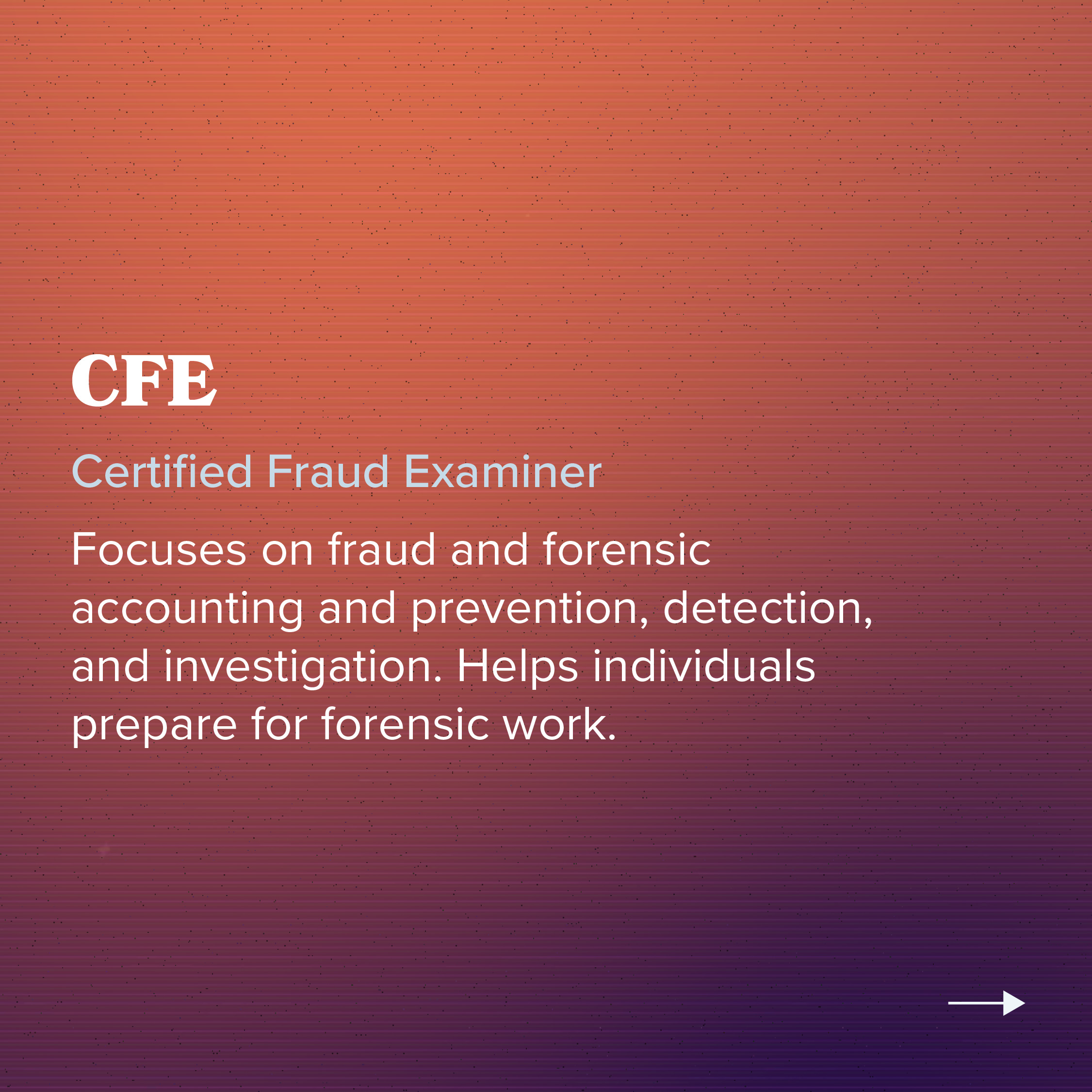
Personal Financial Services (PFS)
The PFS credential represents expertise in comprehensive personal financial planning, encompassing estate planning, retirement planning, investments, insurance, and tax strategies. This credential demonstrates expertise in integrating these areas to develop and implement sound financial plans.
Requirements:
- Must be a CPA in good standing.
- Minimum of 75 hours of personal financial planning education.
- At least 3,000 hours of personal financial planning-related experience in the past five years.
- Pass the PFS exam or meet an experience-based waiver.
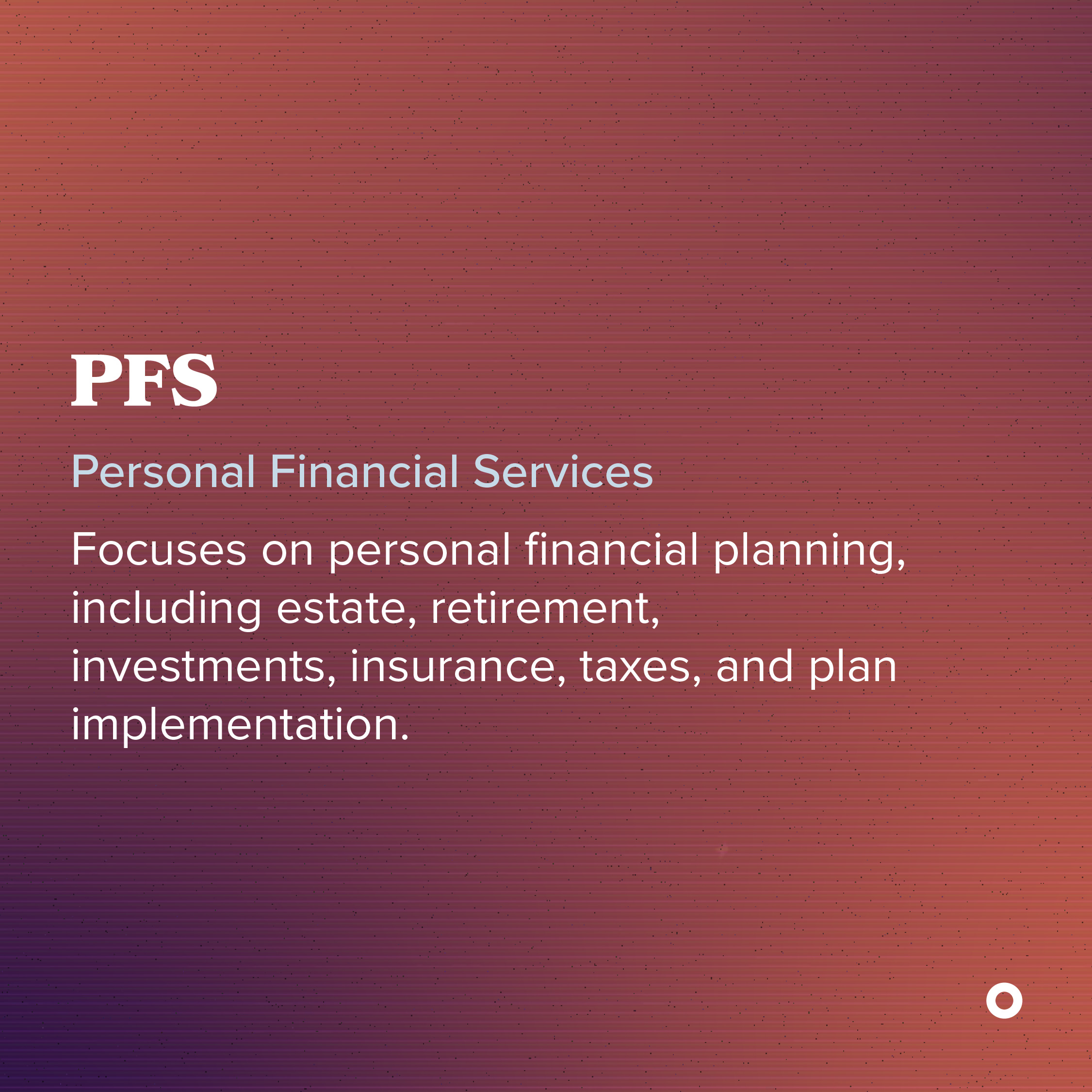
What accounting certification are worth acquiring? How do I choose?
The majority of accountants will find value in pursuing and acquiring the CPA as it is recognized worldwide, and signals competency in accounting, business, law, and economics. CPAs are highly sought after by professional accounting firms, as well as businesses, and government.

We recommend every accounting student aspire to become a CPA. The CPA is the gold standard in the accounting profession, and CPAs are the world’s most trusted business advisors.
“We recommend every accounting student aspire to become a CPA,” says Joseph Ugrin, Head of the Department of Accounting at the University of Northern Iowa. “The CPA is the gold standard in the accounting profession, and CPAs are the world’s most trusted business advisors. CPAs are in such high demand across the business world that obtaining the credential almost assures you of opportunity for a great career. But there are other recognized credentials that signal competency in specialized areas.”
Beyond the CPA, the choice depends on a lot of factors: personal preferences, career aspirations and company incentives.
If you’re interested in becoming a leader or manager in corporate finance or accounting, the CMA would be a great fit. Or if you want to work for the FBI or any other investigative agency, the CFE could be a huge benefit. Many companies also offer bonuses or promotions for certain certifications, so that might be incentive enough to pursue a certain path.
Salary is also a huge consideration. Since accounting positions span every industry, exact numbers are hard to find, but it’s clear certifications lead to higher salaries. As one example, those with a CMA certification earn 20% more in median salary and 24% more in median total compensation than non-CMAs, according to the Institute of Management Accountants. Other studies show CPAs earn more than 20% than their non-CPA peers.
Whatever the case, do plenty of research before deciding on your certification journey.
Can you get more than one accounting certification?
Of course. Many people add credentials depending on their field or industry. This is often called “stacking certifications.” Many certifications share similar requirements and topics, so accountants can tackle various certifications at the same time.
A popular dual certification path is the CPA and CMA. The CMA shares a lot of its curriculum with the CPA, but with a more specialized emphasis on financial management. As another example, CIAs specialize in internal audits, expanding on the CPA’s knowledge in that area.
“I think it’s a great idea for students to earn a recognized credential to complement their college degree,” said Ugrin. “It provides additional verification of their competency, which is why our department and the Wilson College of Business support students in obtaining licensing and certification, no matter the field.”
The Wilson College of Business is a leader in accounting education, ranking as a top school for CPA success and setting students up for success in their certification journey. Find out more and start your journey here.




